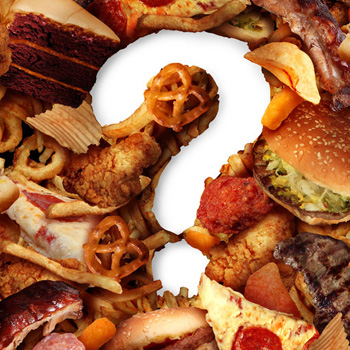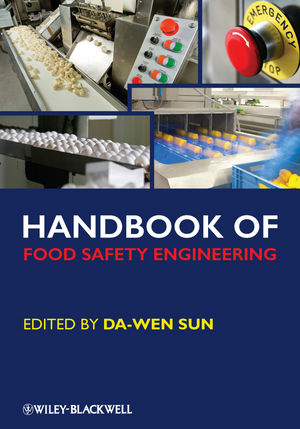Fear of the Unknown Cause of Contamination

It is the worst nightmare for many in the food industry—a massive recall due to contamination or spoilage. While companies can mitigate supply chain risk by insuring against damage or contamination, what happens when the actual cause of damage is unknown?
Commercial general liability policies typically provide coverage to insureds for losses resulting from property damage caused by an “occurrence.” An “occurrence” is usually defined in the policy as “an accident, including continuous or repeated exposure to substantially the same harmful conditions.” Thus, these policies are meant to insure the policyholder’s negligent acts rather than intentional ones. In the context of food recalls, however, the exact cause of the food damage, whether contamination, spoilage or something else, may be unknown. In those circumstances, insurers often argue that the resulting damage is not covered because it is not clear that it was caused by an accident—and thus an “occurrence” under the policy to trigger coverage. Recent cases from around the country support claims for coverage even where the cause of loss is unknown.
For example, in The Hanover Insurance Group, Inc. v. Raw Seafoods, Inc., 91 Mass. App. Ct. 401 (2017), a Massachusetts appellate court held that the insured seafood processing facility was covered for nearly $600,000 in damages plus interest that it was ordered to pay as a result of a shipment of spoiled scallops for which the cause of spoilage was unknown. According to the facility’s policy, the insurer was legally obligated to pay for damages resulting from unintentional or accidental property damage. Yet, the insurer denied coverage for the loss of the scallops, arguing that the insured could not prove that the loss resulted from an accident.
The court rejected the insurer’s argument and found that though the precise cause of damage to the scallops was unknown, the damage to the scallops constituted an accident, and thus a covered occurrence under the policy. Because a similar incident had never occurred before or since, the court determined that the harm was unintentional.
In The Travelers Property Casualty Co. of America v. USA Container Co., Inc., No. 14-3685 (3d. Cir. April 18, 2017), the insured’s claim arose out of corn syrup that was damaged during the insured’s transport. A corn syrup distributor sued the insured transporter after it was forced to sell the damaged syrup at a reduced rate. To compensate for its loss, the insured filed a claim with its insurer.
The insurer denied coverage, arguing that the damage to the corn syrup could not constitute a covered “occurrence” under the policy because it was the result of what the insurer deemed “faulty workmanship.” Like in the Raw Seafoods case, however, the court found that the damage to the corn syrup was considered an occurrence because it was the result of an unintentional harm caused by the insured’s negligent conduct. Moreover, the court held that the faulty workmanship and precautionary recalls exceptions did not limit the insured’s coverage because the damaged corn syrup did not have to be recalled, replaced or repaired.
Similarly, the court in Cheer Pack North America, LLC v. Valley Forge Insurance Company and Continental Casualty Co., Case No. 15-14135-FDS (D. Mass. April 28, 2017), held in favor of the insured, rejecting the insurer’s argument that it had no duty to defend its insureds in a lawsuit, in part, because it alleged the property damage at issue was not due to a covered “occurrence.” The insured, which manufactured flexible pouches with screw caps for various food products such as baby food, sought coverage for a suit brought by a provider of organic foods and the manufacturer for those snacks following a voluntary recall. The suit alleged that Cheer Pack failed to handle the products in a clean and sanitary environment, causing bacterial growth. Cheer Pack’s insurer denied coverage, arguing that the claim for property damage was not caused by an occurrence. The court, however, disagreed and held in favor of Cheer Pack, because it determined that the failure of the pouches to maintain a hermetic seal during processing was an unexpected incident and thus an “occurrence” that caused the contamination and damages.
Although food industry risk managers work to mitigate the risks of contamination or spoilage through food safety control processes, they can only do so much to combat the unknown causes of damage. Fortunately, insurance can help cover resulting losses and claims, including the costs of recall, when damage results from “the unknown.” Nonetheless, as the cases above demonstrate, many insurance claims can result in litigation. To avoid a lengthy coverage dispute with insurers and to ensure maximum coverage for their losses, insureds in the food industry should carefully consider the specific provisions in their policies and the relevant case law and also consult knowledgeable counsel as soon as they become aware of a potential claim.
Syed S. Ahmad, Esq., is a partner in Hunton & Williams LLP’s insurance coverage practice in the Washington, D.C. office. Andrea DeField, Esq., is an associate in the firm’s insurance coverage practice in the Miami office.
Looking for a reprint of this article?
From high-res PDFs to custom plaques, order your copy today!






